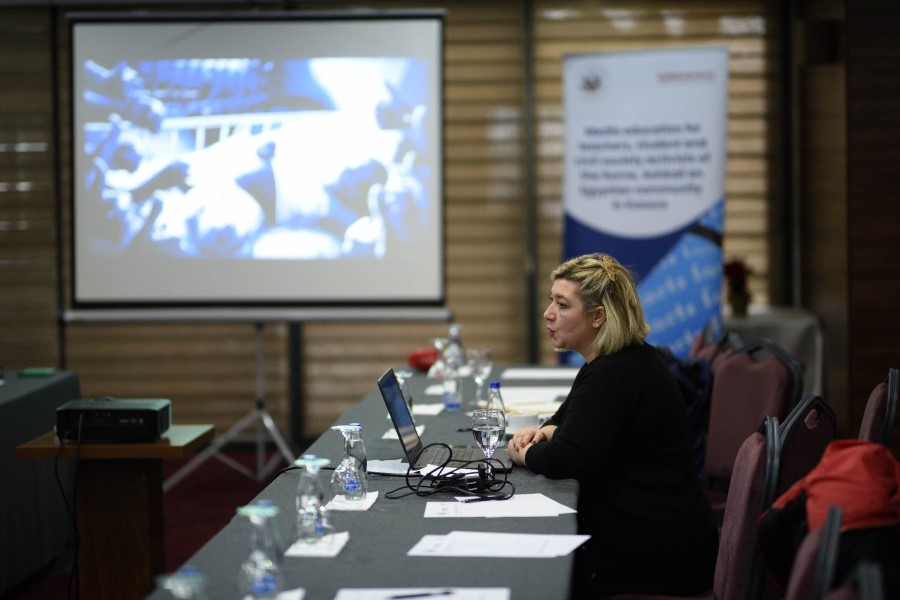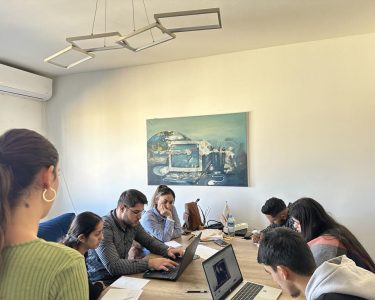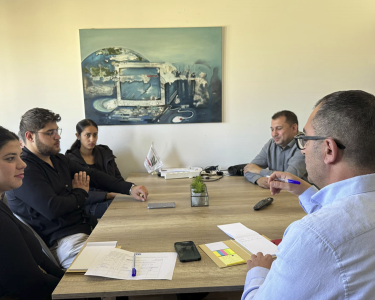The use of stereotypes in media reports is keeping students from the Roma, Ashkali and Egyptian communities out of school. This is just one of the conclusions drawn from the workshops held on media education. The youth of the communities also lack programs for this phenomenon and are at risk from false information. Regarding the latter, they have often suffered in their lives by being stigmatized, bullied and excluded. Civil society activists from the three communities today participated in the workshop held by the KosovaPress News Agency and the non-governmental organization “Young Community Leaders Center/YCLD” supported by the US Embassy in Prishtina.
The cases of girls and boys from communities who have been prejudiced due to disinformation are not rare, says the activist from Mitrovica, Florentina Jahja. She mentions for KosovaPress the cases when her friends names were mentioned by the media, even though the news was fake.
“There was a case of a girl where the media used her name, and then that girl was prejudiced. They said that she was sexually harassed in a taxi, and she was prejudiced by the relatives, by the family. But the girl was neither in Mitrovica nor was she there, but someone wanted to harm her… A media wrote on Facebook that a sexual harassment took place in Mitrovica, in our neighborhood and they mentioned her name, the whole neighborhood saw the news. And then that girl was prejudiced, saying why she was alone or ‘why did you get into a taxi at night by yourself’ and that girl had a lot of problems”, she said for KosovaPress.
While mentioning similar cases, Florentina also talks about the importance of media education for young people of the Roma, Ashkali and Egyptian communities.
“Young people have very little information about how to use the media, and they have no information about how badly they use the media. On the other hand, the media sometimes present us as a bad community or show only our bad sides. For example, they come to the neighborhood and film the children, they show the garbage but they don’t show the good sides that we have. And this creates a message that the communities are only bad and there are no educated people”, she said.
During the seven-month project in four municipalities of Kosovo on media education divided into two phases, six conclusions were drawn.
The manager of this project, Fadil Miftari, says that the main focus during the two-phase training process has been to gather findings and help activists fight disinformation.
“Today was the final meeting of a two-phase training cycle of the project on disinformation. In fact, today’s day was dedicated to civil society activists with whom we shared the findings from workshops that we held in high schools and with high school teachers who teach students from the Roma, Ashkali and Egyptian communities. In fact, we shared the six main findings with civil society activists and to help these organizations to find forms and modalities on how to advance the processes or how to create programs and projects against disinformation”, said Miftari.
In the sessions with teachers and students of the communities, the lack of programs for media education, the use of stereotypes in media reports that keep students away from school, talents among students, the role of teachers to encourage young people, few opportunities for young people to familiarize themselves with the world of media and the danger that comes to them from false information.
“One of the main findings that we discussed today is the fact that there are no media education modules. This problem is not only in the communities that we target, but generally in the education system of Kosovo, such a program is missing and it remains for us as media or as civil society to intervene and support the communities to be educated in relation to disinformation and other forms which today are considered under the ‘fake news’ umbrella”, said the project manager.
Miftari adds that they are making efforts to continue this program on media education also with other communities. According to him, this phenomenon is disturbing all over the world, for which measures are being taken.
This project aims to raise the awareness of the communities against disinformation, as well as to strengthen the role of civil society activists from the Roma, Ashkali and Egyptian communities. The project included two phases, where in the first phase the teachers of primary schools from the sixth to the ninth grade were involved. Meanwhile, in the second phase, professors and secondary school students from grades 10 to 12 were involved.








